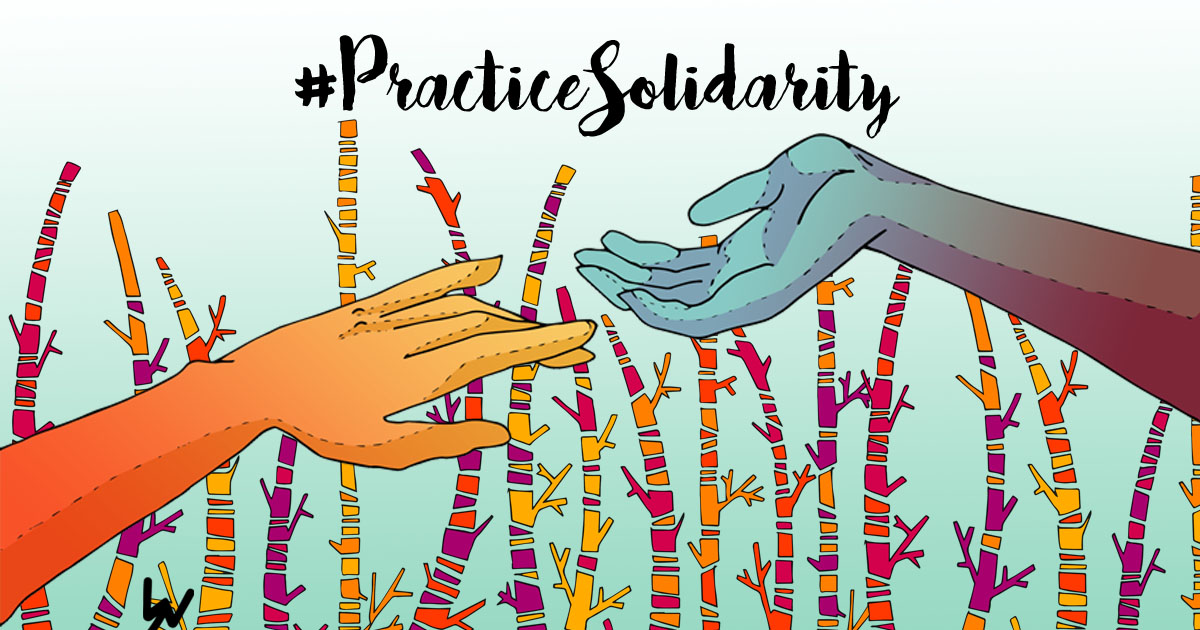The Association for Women’s Rights in Development (AWID) is calling for Young Feminist Activism at the Intersections of Gender, Racial, Economic, Social, and Ecological Justice Movements through their #PracticeSolidarity tweetathon campaign on June 21, 2016.
What is #practicesolidarity?
#PracticeSolidarity is a campaign exploring what solidarity means for young feminists across gender, racial, economic, social, and ecological justice movements. Young feminists will have the opportunity to reflect on and expand our own experiences with solidarity, while trying to push the boundaries of feminist and women’s rights movements on the issue of solidarity and what it looks like.
The #Practicesolidarity campaign aims to promote young feminist discourses on solidarity, as well as practices, that do not separate themselves from struggles against colonialism, racism, sexism, homonationalism, Pinkwashing, islamophobia, cultural imperialism, and neoliberalism, and to advocate for concrete cross-movement solidarity and joint action.
What questions will the campaign explore?
How are young feminists breaking silos and joining together to strengthen solidarity between different movements? How do we, as young feminists, practice solidarity in our day-to-day lives? What do we mean by solidarity and how does solidarity differ from compassion, sympathy, or good intentions?
What are key alliances across movements that can and must develop for there to be sustained peace, justice, well-being, and the preservation of the planet? What cross-movement alliances already exist – what sustains them and how do they generate positive impact? What development and economic models are we calling for? What principles are we rooting our lives, activism, and solidarity in? How are we addressing inequalities within and between nations and movements and working towards a rebalance of power relations for justice? What is the role of solidarity in addressing inequalities? How can we not just talk about/pay lip service to, but embody, a decolonized feminism in our everyday actions? What does it mean to feel a co-responsibility towards a struggle? How does the nexus of sexualized, gendered, and racialized class politics fit into the solidarity equation?
Does solidarity truly exist? In light of emerging politics of solidarity and our inherent differences, we ask – are all young feminists standing in the same movement and fighting for the same cause? How do young feminists build points of connections and shared understandings of feminisms to strengthen the movement? How do young feminist activists, in all our diversities, recognize our own privileges and step-back when needed?
What do feminist futures look like and how do we forge strong coalitional politics to get to where we want? How do we exchange with the generations of feminists that have come before us and between young feminists? How do we share our message with an older generation without creating tensions/re-creating the same hierarchical power dynamics we are criticizing as feminists? What does a radically transformative vision to end oppression and advance shared visions for a just world look like?


